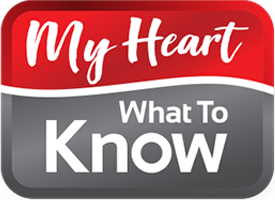Dr. Sasha High, medical director of the High Metabolic Clinic in Ontario, has worked with hundreds of people who are trying to improve their health and reach a healthier weight. Along the way, she’s learned a lot about what helps people succeed. Here are eight of her best tips for creating the habits that make reaching a healthy weight ACHIEVABLE.
- Give your day structure!
When we don’t have structure in our day, it is very easy to go on autopilot, warns Dr. High. That’s problematic because a healthy lifestyle is all about conscious control, being aware of what, when, and why you’re doing things. (This is why so many people struggle with sticking to healthy eating on the weekends.) Do you grab a snack every time you walk by your kitchen? Instead, Dr. High recommends building a daily schedule with clear eating times, activity times, and rest times. Structure makes it easier to avoid all-day grazing and helps you feel grounded during non-eating times.
- Make sleep a priority.
Getting good sleep is a tip that shows up again and again when it comes to a healthy lifestyle, but Dr. High says it’s especially important if you’re trying to manage your weight. Lack of sleep can worsen insulin resistance, increase hunger hormones, and decrease our restraint in the face of cravings. Unfortunately, it’s not uncommon for people to have trouble getting the sleep they need. Dr. High recommends setting a consistent bedtime and wake up time, with a goal for lights out before 11 pm. This will help your circadian rhythm hormones and overall quality of sleep. If getting to sleep is your problem, she recommends trying a sleep or meditation app and ensuring good sleep hygiene (avoiding caffeine, keeping your room dark, avoiding screen time before bed). Taking a magnesium supplement before bed may also help improve your sleep.
It takes practice, but once you start getting into the routine of good sleep habits, you’ll notice the positive health effects on your weight, mood, and energy levels.
- Separate work life from non-work life.
When many of us started working at home during the COVID-19 epidemic, Dr. High noticed that many of her patients were working from sun up to sun down. Going to an office automatically creates a boundary between work life and home life, but when you’re working from home, those boundaries start to become less clear.
If you work from home, she suggests only working the hours you would normally work at your office – and doing your best to stick to it, even if it means setting an “end of work day” alarm on your phone. She also recommends having a separate area of your home for work if possible, and ideally away from the kitchen where food cues abound. Working all day, every day may seem productive, but it likely comes at the expense of other core life values, including health. Giving yourself a break from your work and taking time to enjoy favorite hobbies or family time are imperative for a healthy lifestyle.
- Get outside!
If you’ve ever struggled with a whiny, restless child, you likely have seen the benefits of a trip to the park or a romp in the backyard. Dr. High says these feel good, calming benefits of the outdoors are not just for children. No matter your age, everyone can benefit from fresh air. Even five minutes outdoors can increase feel-good hormones like dopamine & serotonin, improving your mood, increasing motivation and even boosting your self-esteem. Build outside time into your daily schedule. Whether it’s a morning walk or five minutes of bird watching on your lunch break, making a habit of getting outdoors will help keep you healthy and happy.
- Prioritize physical activity.
If you’re not feeling motivated to go for a run or do an online workout class, don’t fret. Organized exercise is awesome, but it’s not the only way you can reap all the benefits movement provides. Daily physical activity will deliver a lot of the same perks without all the structure. Dr. High created her own standing desk by placing a chair on top of her desk and setting her laptop in the seat. Standing all day helps her feel active and more engaged in her work. She also says it feels better for her body than sitting does. Try her DIY approach to a standing desk or set an alarm that reminds you to get up and moving at least once an hour. Take out your trash, vacuum your house, scrub your shower or just do a minute of jumping jacks. It doesn’t have to be complicated – as long as you’re making movement a priority, your body will be happy!
- Find the positives.
We don’t have to deny when we’re feeling anxious or worried, but Dr. High recommends we do our best to see the positives where we can. There’s room for disappointment and positivity to exist in the same space, that’s life. Do your best to see the positive and take advantage of opportunities as they arise. For more about using CBT (cognitive behavioral therapy) to change our thinking, read this article.
- Have self-compassion.
The truth is that changing our behaviors and making healthier choices is hard. There will be trial and error, good days and bad. If your eating hasn’t been on plan, or you haven’t had the motivation to exercise, be gentle with yourself and remember not to expect perfection. Offer yourself forgiveness and view mistakes as opportunities to learn and improve upon instead of as failures. The more compassion you can give yourself, the more quickly you can move past mishaps and start working toward your goals.
- Identify your values.
Your values are your internal drivers that help you decide what’s important to you in your daily life and beyond. They can keep you grounded when things feel discombobulated, and motivated when you’re feeling less than enthusiastic. Values are different from goals, explains Dr. High, “goals are outcomes that may or may not be accomplished, but we can live a fulfilled and meaningful life if we live in congruence with our values”. For example, Dr. High says she really values productivity and reminding herself of that helps her avoid mindlessly turning on the television or scrolling through social media. “It’s not that I never watch TV,” she says, “it’s just that I make sure it’s for a good reason that aligns with my values – like watching a movie with my kids.” If you’re struggling to come up with your values, Dr. High suggests imagining your best friend is being interviewed about you. Think about which three qualities you would want your friend to describe and use that as a jumping point for coming up with a few values (which may be specific to different life domains, like health, work, family and relationships). Then use your values to establish committed action and keep you motivated for living your best life.
This advice is a great way to get a jump start on getting healthy, but when it comes to weight loss, lifestyle changes alone will not be enough for most people with obesity. Obesity and excess weight are medical conditions that usually require support from a professional. To find a physician (like Dr. High) near you who specializes in helping people reach a healthier weight, click here.
—
An important step towards better health for many people is reaching a healthier weight, which can reduce the risk of cardiovascular disease. To find a physician near you who specializes in weight management, click here.
—
All the information provided on this site is for educational purposes only and is not a substitute for professional medical advice, diagnosis, or treatment. My Heart – What To Know is not a healthcare provider or clinic. ALWAYS consult with a qualified healthcare provider regarding any questions you may have about a medical condition. Never disregard professional medical advice or delay in seeking it because of something you have read on this website. If you think you may have a medical emergency, call 911 or go to the nearest emergency room immediately. No physician-patient relationship is created by this website or its use.
This article was sponsored by Novo Nordisk Canada. All content is created independently by My Heart – What To Know with no influence from Novo Nordisk.

